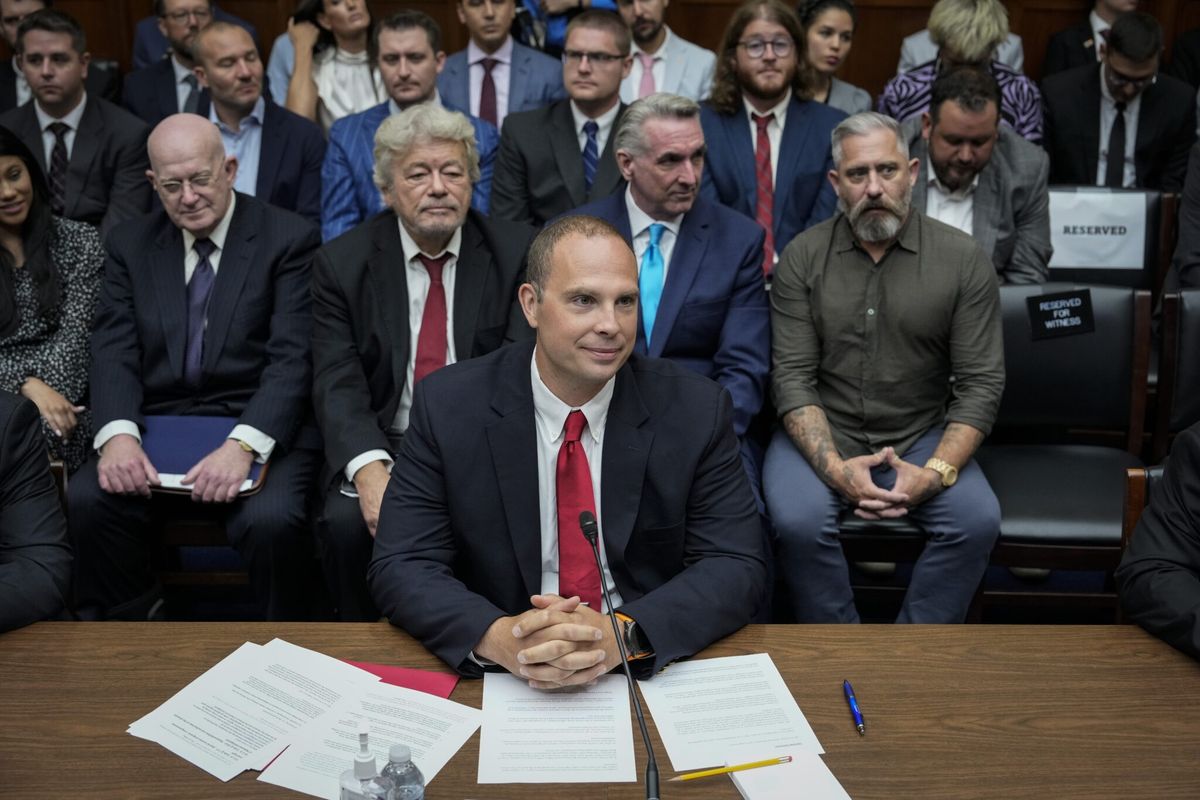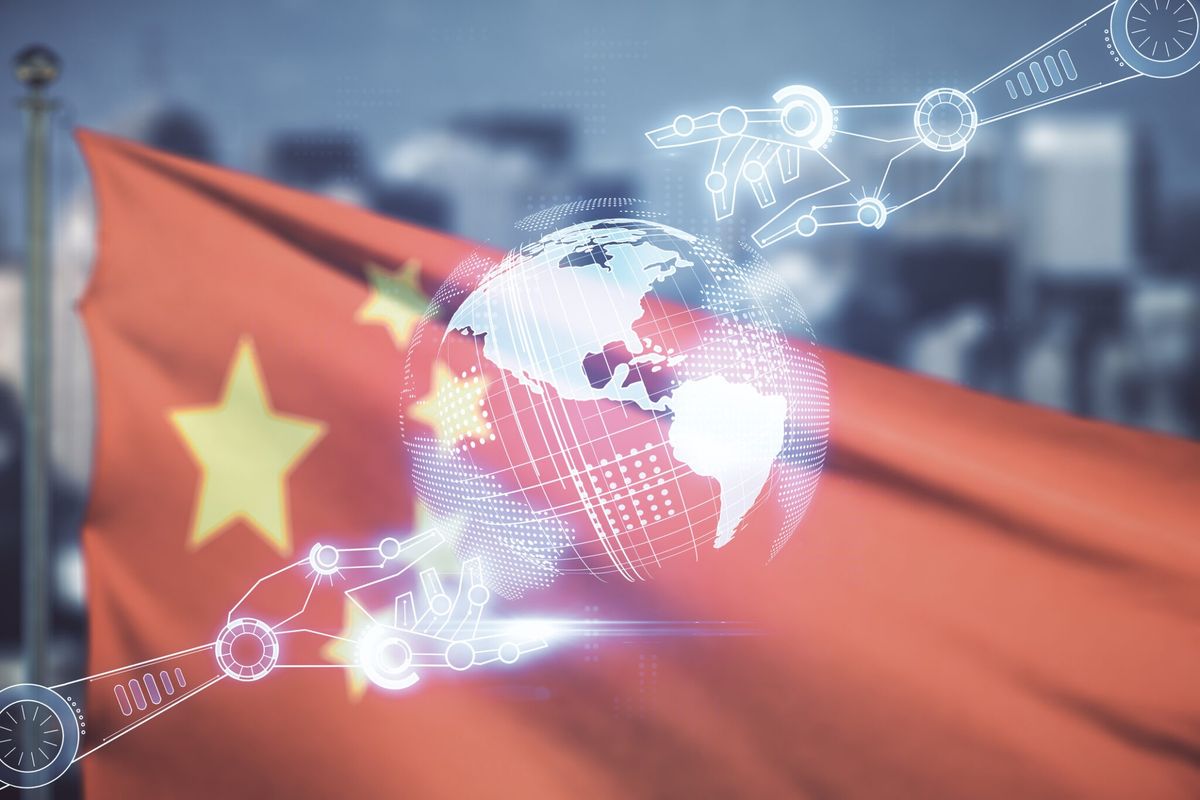OPINION — In February 2023, the Biden Administration rapidly declassified intelligence related to China’s aerial intelligence collection activities to counter Beijing’s false claims that a Chinese spy balloon, shot down after a public flight across part of the United States, was merely collecting weather data. One year earlier, the administration had also declassified intelligence that unearthed Russia’s deception about its plans to invade Ukraine. These two instances have given democracy a sudden advantage in its escalating narrative dogfight with authoritarianism. Providing a glimmer of hope against the last 16 years of declining civil rights and liberties worldwide, this advantage suggests the United States intelligence community can play a critical role in support of global democracy.
Democracy wins by sharing information; authoritarianism wins by quelling it. In the weeks preceding Russia’s invasion of Ukraine, conventional measures of warfare and wisdom suggested that Putin and authoritarianism held the upper hand as Russian forces and capabilities outnumbered Ukraine’s by rather compelling arithmetic. But the United States adopted decidedly unconventional methods of warfare, declassifying and disclosing intelligence about Russia’s movement of Special Forces towards Ukraine’s borders, construction of hospitals stocked with blood supplies, and creation of fake videos as part of a false flag campaign to conceal Russia’s true intentions. The Russian advantage was negated: Putin could no longer invade Ukraine under the pretext that Ukraine was the aggressor, and this meant that other countries— particularly NATO countries — couldn’t ignore Ukraine’s plight.
Judiciously declassifying intelligence can neutralize opponents of democracy by using objective truth to counter fabricated disinformation and to dispute the post-truths that are increasingly associated with authoritarian regimes. Objective truths are facts or realities that exist independently of individual perspectives or beliefs. Post-truth, according to the Oxford dictionary, which chose it as the word of the year in 2016, is “relating to circumstances in which people respond more to feelings and beliefs than to facts.” Scholars such as Cunha, Levy, McIntyre, and Snyder suggest that post-truth fuels authoritarianism, which seeks to erode a shared reality, increasing people’s susceptibility to divisiveness and exploitation. Defending the difference between truth and lies is defending the free will to choose reality over political manipulation.
It is important to remember that humans have always relied much more heavily on emotions for decision-making — as much as 90% of the time. The difference in the post-truth world is the blatant disregard for fact, or any need to subscribe to it. Authoritarian regimes used to care about window-dressing oppressive rule to mimic democracy. Most go through some pretense of holding elections, however rigged, and maintaining institutions, however corrupt. But as distrust in democracy and the manipulation of information enables authoritarianism to thrive, pretending matters less and less.
Looking for a way to get ahead of the week in cyber and tech? Sign up for the Cyber Initiatives Group Sunday newsletter to quickly get up to speed on the biggest cyber and tech headlines and be ready for the week ahead. Sign up today.
The decision to declassify information must balance national security interests, protect sensitive information, and promote transparency and accountability. Such transparency does not include unauthorized disclosures, like that of Edward Snowden, Chelsea Manning or — most recently — Jack Teixeira, who was arrested on April 13th for posting classified documents on social media website Discord. The IC has historically operated on a “demand" basis, revealing its intelligence secrets reluctantly, reactively, and in the face of pressure by parts of the U.S. government, the media, or the public. But this can change. Our democracy depends not just on an open dialogue between the IC and the American public, but also on the national security enterprise’s willingness to fold in private industry and outside experts as part of the security equation. There may come a time that the IC’s secrecy bias places our nation’s security in jeopardy, and it may come sooner than we’re prepared for.
There’s a 400 million-page backlog of documents waiting to be declassified, and the classification system itself costs more than $18 billion a year. We can avoid adding to that backlog by determining what information shouldn’t be classified in the first place — and there’s plenty of it, much of which already has precedent.
- Specific details on deception by an authoritarian leader. President Biden’s actions weren’t completely unprecedented: the Kennedy Administration also declassified intelligence information during the Cuban Missile Crisis, showing that Soviet leader Khrushchev had lied about not deploying offensive weapons in Cuba. The U.S. also exposed Soviet lies denying the Chernobyl reactor meltdown.
- Public health concerns. In mid-March 2023, Congress sent a bill to the President requiring the declassification of all information related to COVID-19’s origins “with redactions only as necessary to protect sources and methods.”
- Attacks against the private sector. The IC has a duty to warn individuals about threats of physical harm, but does not have to warn about non-violent threats, such as cyberattacks and intellectual property theft. As a RAND study argues, existing policy can be modified to warn commercial and non-governmental targets of persistent attacks from foreign governments.
- High priority cyber threats. NSA has partnered with over 300 private sector companies to identify cybersecurity threats that can have a nation-wide impact on critical infrastructure.
- Safeguarding election security. In 2022, the FBI and Cybersecurity & Infrastructure and Security Agency (CISA) put out a joint statement pre-bunking the false claim that cyber actors would compromise election infrastructure and cause largescale disruptions to voting.
- Environmental security threats. In the 1990’s, the IC released satellite imagery from the Cold War era that scientists are now using to assess the impact of global warming and climate change.
- Correcting the record. Private industry is swiftly developing capabilities that equal or surpass the IC’s. It won’t be long before they begin releasing their own assessments, which may lack the objectivity rigor the IC has employed for decades, but will also be available immediately and to a much broader audience.
The U.S. Intelligence Community is uniquely situated to defend global democracy against authoritarianism. No other entity, private or otherwise, can lay claim to both its objectivity and analytic depth and rigor. But it doesn’t have to stop there. The precedents above suggest that the American people would be the greatest beneficiaries of a national security system truly built with them in mind.
The Cipher Brief is committed to publishing a range of perspectives on national security issues submitted by deeply experienced national security professionals.
Opinions expressed are those of the author and do not represent the views or opinions of The Cipher Brief.
Have a perspective to share based on your experience in the national security field? Send it to Editor@thecipherbrief.com for publication consideration.
Read more expert-driven national security insights, perspectives and analysis in The Cipher Brief because National Security is Everyone’s Business
















